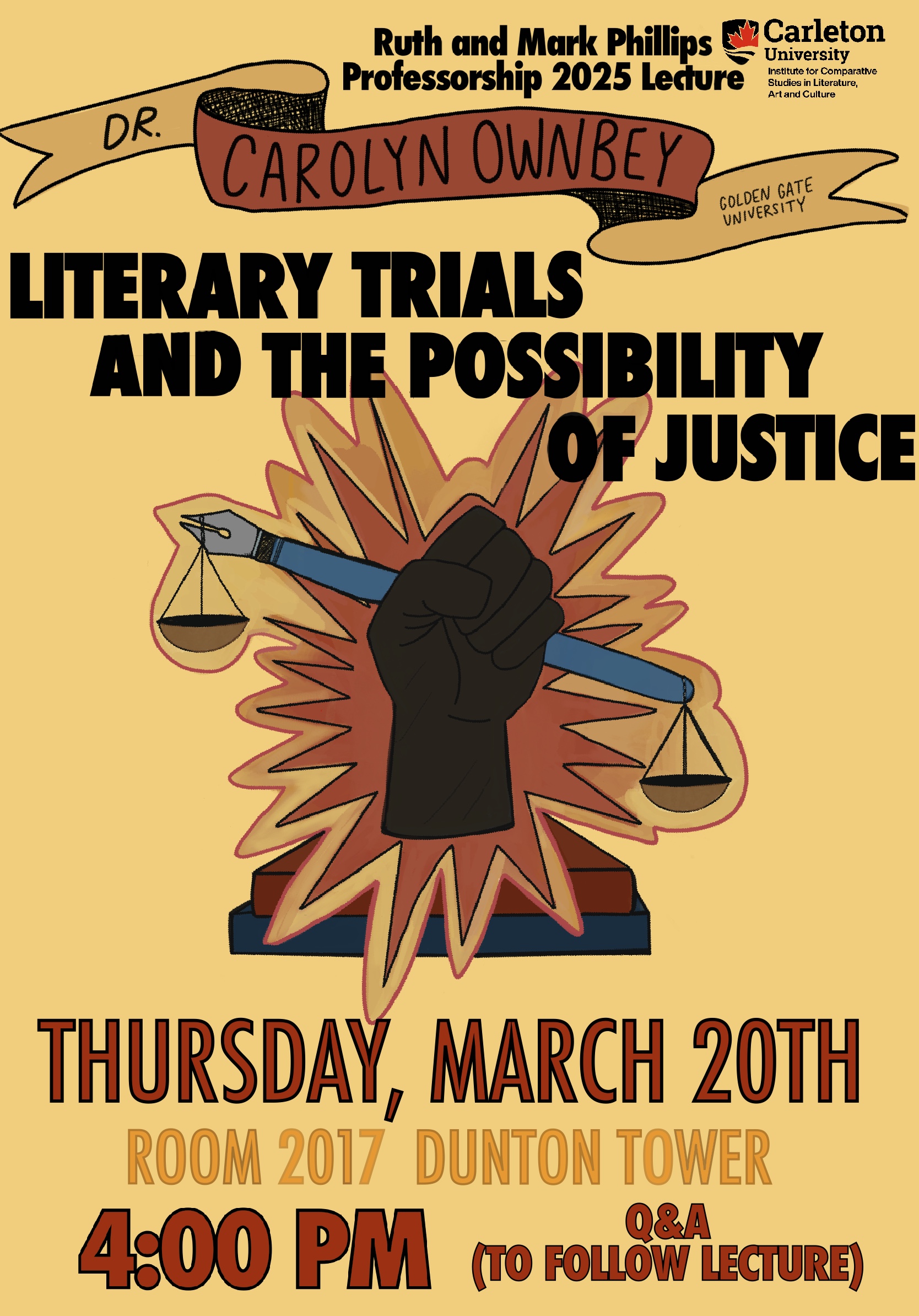We invite you to join us Thursday, March 20th, 2025 for this year’s Ruth and Mark Phillips Professorship (RMPP) Lecture! The current holder, Dr. Philip Kaisary welcomes Dr. Carolyn Ownbey (Golden Gate University, Assistant Professor, Department of English) to deliver her talk, titled “Literary Trials and the Possibility of Justice” (abstract below). The lecture begins at 4:00pm, Room 2017 Dunton Tower (Carleton University), with a Q&A to follow!
Dr. Carolyn Ownbey (she/her) is a scholar of anticoloniality, citizenship, and human rights in literature and other media since the mid-20th century. She is presently Assistant Professor at Golden Gate University in San Francisco, where she previously served as Chair of English, Communications, and Literature and Faculty Director of the Degrees+ Programs. Her scholarship and teaching focus on anticolonial literature and other media; law, human rights and narrative; and theories of democracy and citizenship. Her current book in progress is an interdisciplinary project focused on questions of law, human and civil rights, nation, and state in several modes of political resistance writing since 1945.
“Literary Trials and the Possibility of Justice”
Abstract:
What purpose does the discipline of law and literature studies, as well as the literature and other media utilized within the discipline, serve? Many scholars have argued that their purpose is properly to serve law—that is, to illuminate the ways in which law and legal practice may be improved to better serve justice. This lecture will consider whether and how the scope and function of law and literature studies and its objects exceeds those legal bounds, and to what end, through a consideration of literary trials. Trials (and the law more generally) do not functionally “make a sharp and necessary break with the social relations that underpin” their crimes, to quote Rinaldo Walcott in a different context. It is difficult to overstate the stakes of this failure, though often relatively easy to cite its consequence—repetition of the crime because the conditions of that crime’s happening have not fundamentally changed. Does law (and/as the form of the trial) have the capacity to make such a break, and if so, might literary studies be an avenue through which to do so
To consider the place of literature in helping us to understand the capacity of law as it relates to trials and the social underpinnings of their crimes, I will focus on the work of two authors as primary case studies: Rebecca West and Caryl Phillips. Writing at different moments in the 20th and early 21st centuries, West and Phillips nonetheless cover curiously common ground. The trials that appear in their works, nonfiction and/or fiction(alized), highlight in particular the social conditions before and social legacies after crimes and trials—in Nuremberg, Leeds, and elsewhere—in addition to the ways in which trials narrate, or fail to narrate, their crimes. Each author provides a lens through which to focus on the place of literature and the possibilities of justice within and outside of the law.
